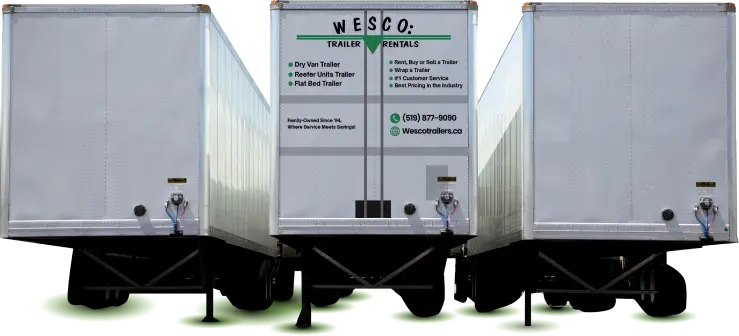Follow Us:
- office@wescotrailers.ca
- (519) 877-9090
- Mon- Thur: 8AM-5PM; Fri 8AM-4PM; Sat & Sun: Closed
Follow Us:
Thinking of ramping up your logistics? Wesco is here to guide and support. Let’s discuss how we can together elevate your business transportation needs.
